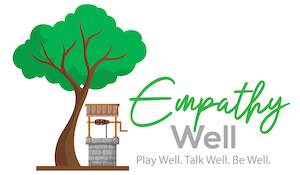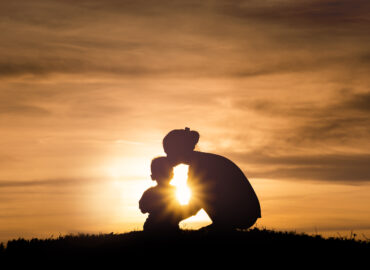As a parent, caretaker, or teacher, it is often challenging to know how much autonomy and responsibility you should ask of a child at different ages. This information sheet provides you with typical independent responsibilities that most children can be trusted to accomplish at each age. However, a caretaking adult should always measure the unique setting, developmental level, and abilities of each child to ensure safety when supporting autonomous tasks. Each age builds on the one before so children should be able to do earlier tasks before they move on to more complex tasks.
You might be worried about allowing or encouraging your child to engage in some tasks because you are not sure they can handle the task appropriately or you have concerns about safety. Each task will initially involve teaching, modeling, and support by an adult and then the goal is independence in each task. You may have to work on letting go and building trust in your child. Start with small tasks and then build up to bigger ones. Allow your child to make mistakes and learn from those mistakes. Don’t try to save them from every failure. Your job is to make sure they are physically safe and serve as a support when they need extra emotional encouragement. For parents of younger children, it is important to remember that independent tasks will be easier and more successful at older ages if you start at younger ages. For parents of older children, if your child is struggling with anxiety regarding independence, start with younger age tasks and move up from there.
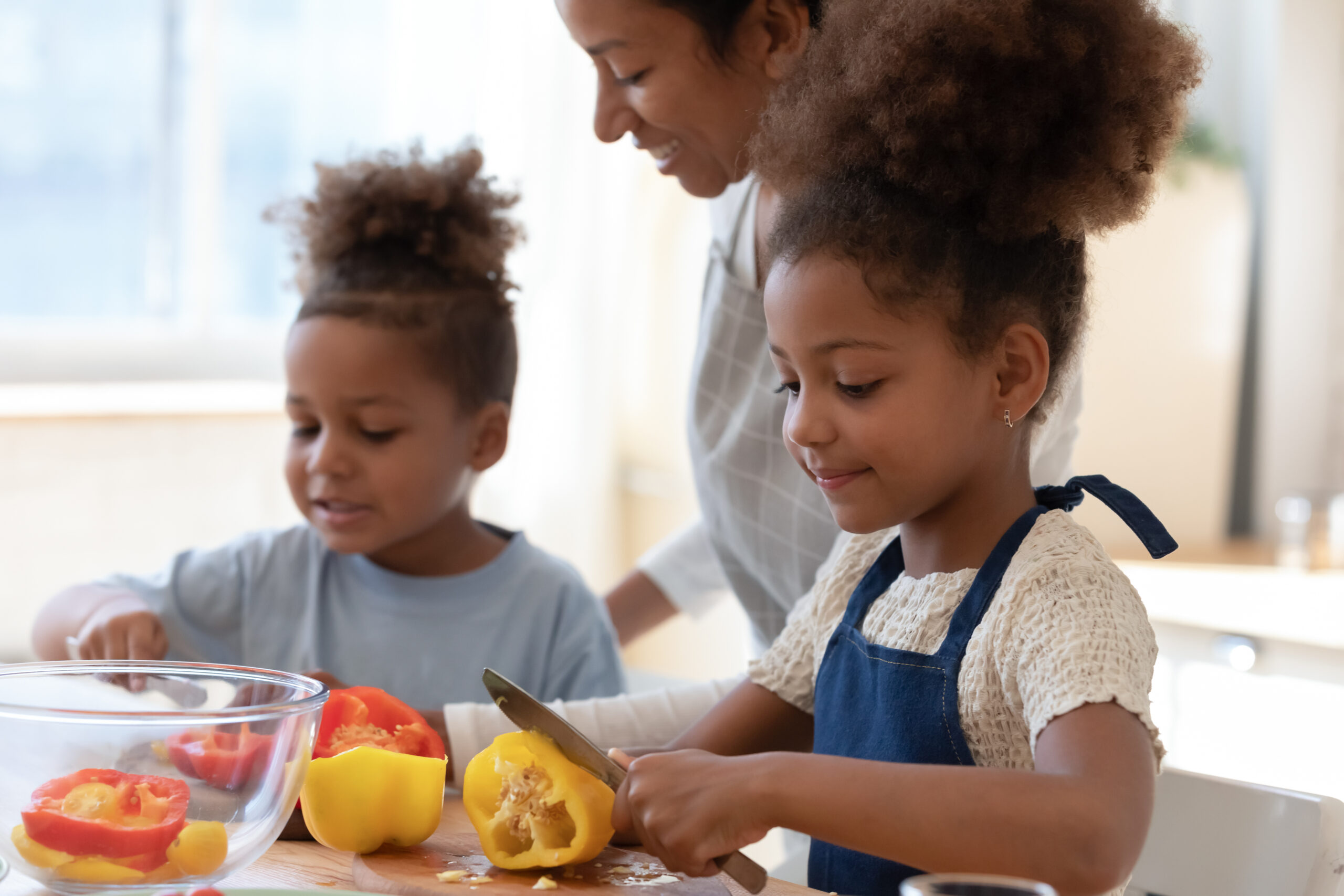
5-Year-Olds
- Pick out clothes (they don’t have to match)
- Dress themselves
- Feed pets
- Basic cleaning skills (sweep, mop)
- Basic hygiene skills (brush teeth, comb hair, wash face)
- Basic kitchen skills (mix, stir, crack eggs)
- Basic food skills (wash fruits, make a sandwich)
- Basic laundry skills (sort clothes, match socks)
- Set table
- Water plants
- Pick up toys and clean up after self
- Use a phone in an emergency
- Play outside in enclosed safe spaces (i.e., backyard) without an adult for 20 – 30 minutes
- Play with other children without an adult overseeing for 20 – 30 minutes
- Walk outside alone within sight distance of adult
- Swim with adult supervision
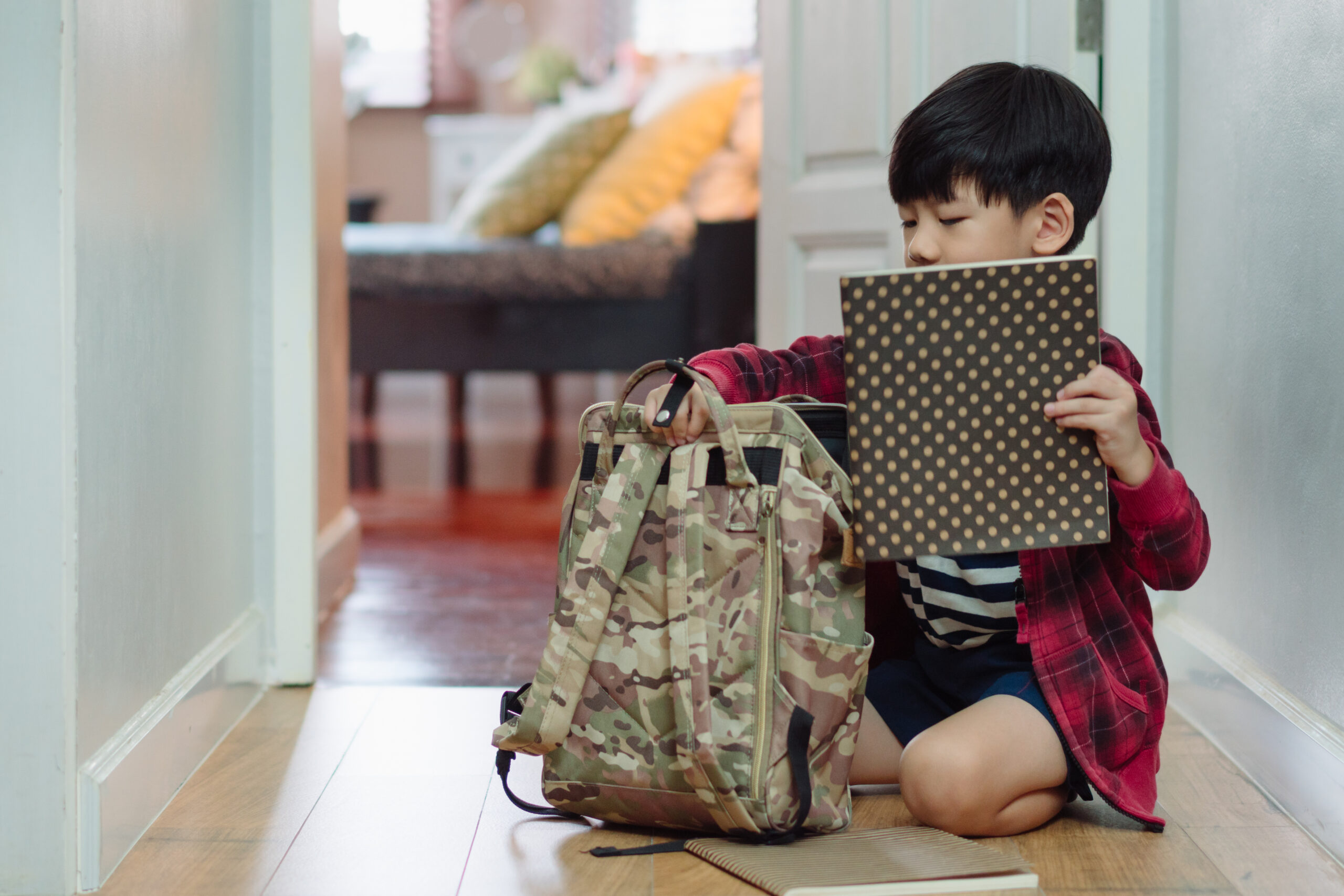
6 & 7-Year-Olds
- Make bed
- Bathe without supervision
- Fold and put away clothes
- Read the children’s menu at restaurants
- Order their own food at restaurants
- Pay cashiers when out shopping
- Intermediate cooking with supervision (scrambling eggs, measuring ingredients)
- Make and pack their own lunch for school
- Help with lawncare
- Attend some extracurricular activities (sports practices, interest groups) on their own without parent present
- Walking dog around block independently or going on short neighborhood walk with a friend without supervision
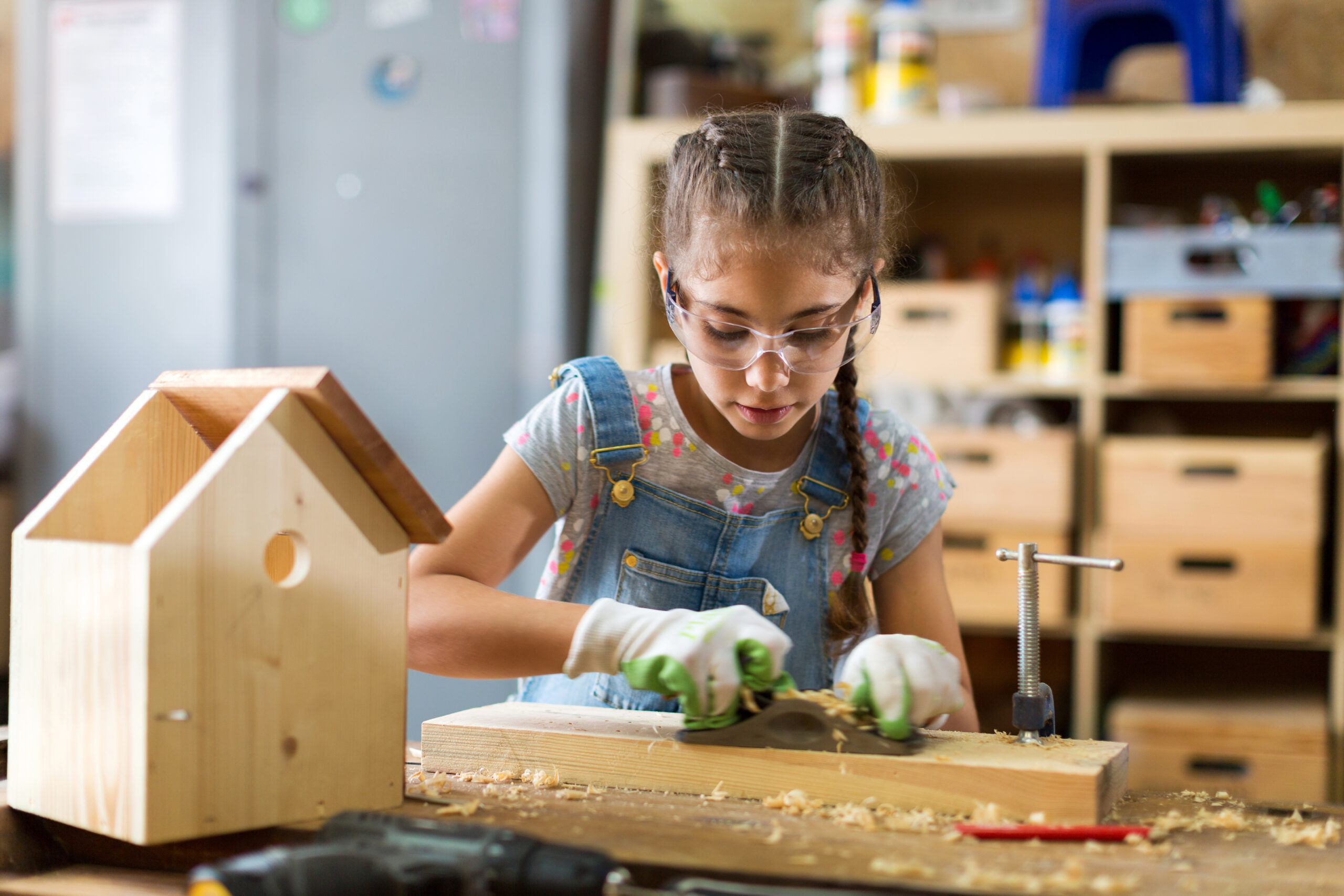
8 & 9-year-olds
- Play outside on their own one to two hours without supervision
- Play outside with friends for a few hours at a time without supervision
- Get really messy and clean themselves up
- Add events to family calendar
- Use tools by themselves (hammer, screwdriver)
- Order food for family at fast-food restaurants
- Add up how much they are spending at restaurants and stores
- If online shopping, keep a balance on items and spending
- Run into grocery store to pick up an item while parent waits in car
- Create grocery lists
- Run errands to neighbors’ houses
- Cook simple meals for family
- Volunteer with local organizations with a supervising adult
- Work out conflicts with friends without adult intervention
- Swim and bike independently
- Attend friends’ parties without parent
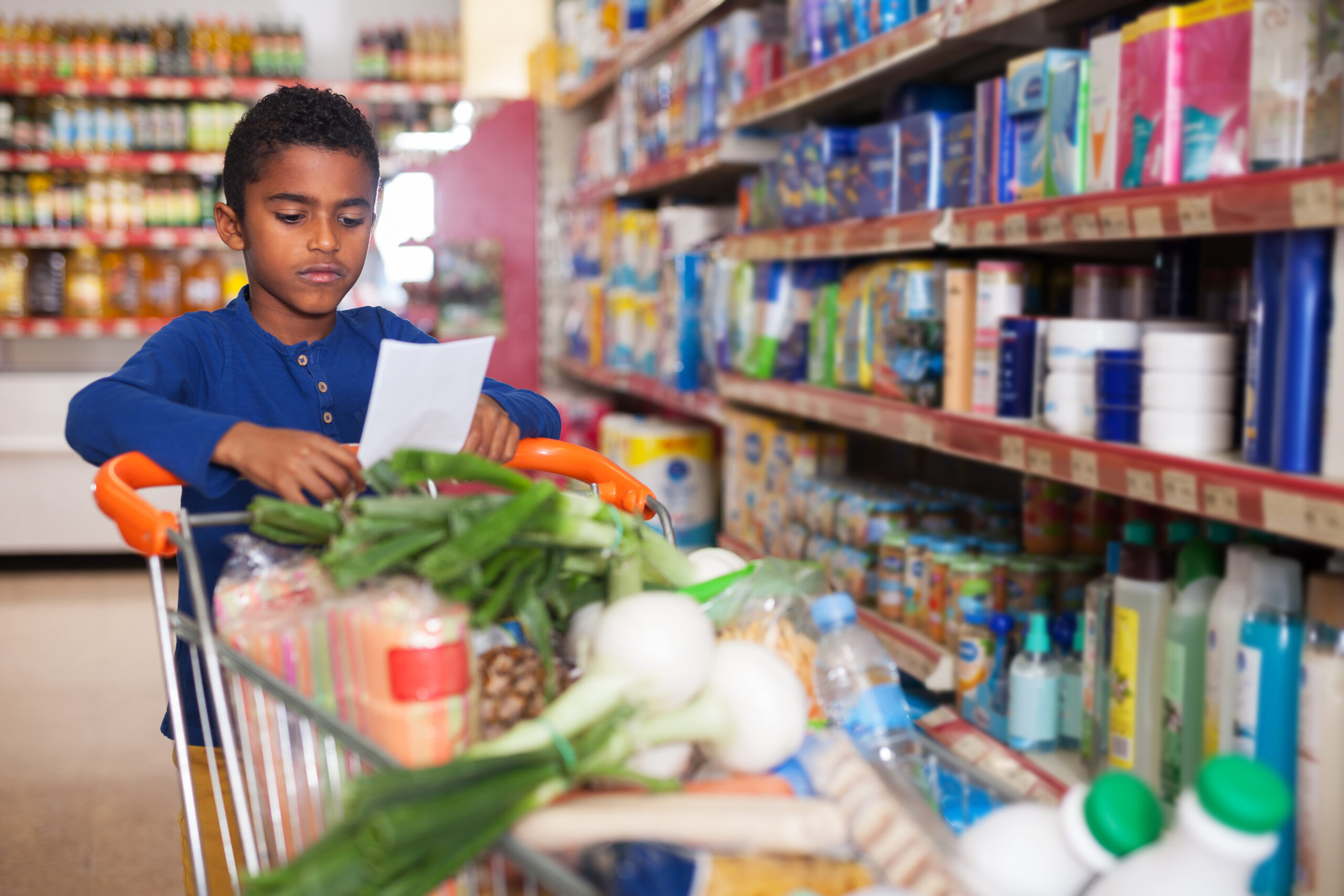
10 & 11-year-olds
- Create their own weekly schedule
- Walk to a store with a friend to run a family errand
- Stay at home alone for one to two hours at a time during daytime
- Be completely responsible for a pet
- Plan a family outing or vacation day
- Maintain hygiene on regular basis independently (showering, deodorant, clothing)
- Be responsible for family grocery purchase under supervision
- Take care of helping with younger siblings
- Develop personal goals/tasks for independence
- Play outside independently (with minimal parent check-ins)
- Play outside with friends independently (with minimal parent check-ins)
- Take a hike with friends without adult supervision
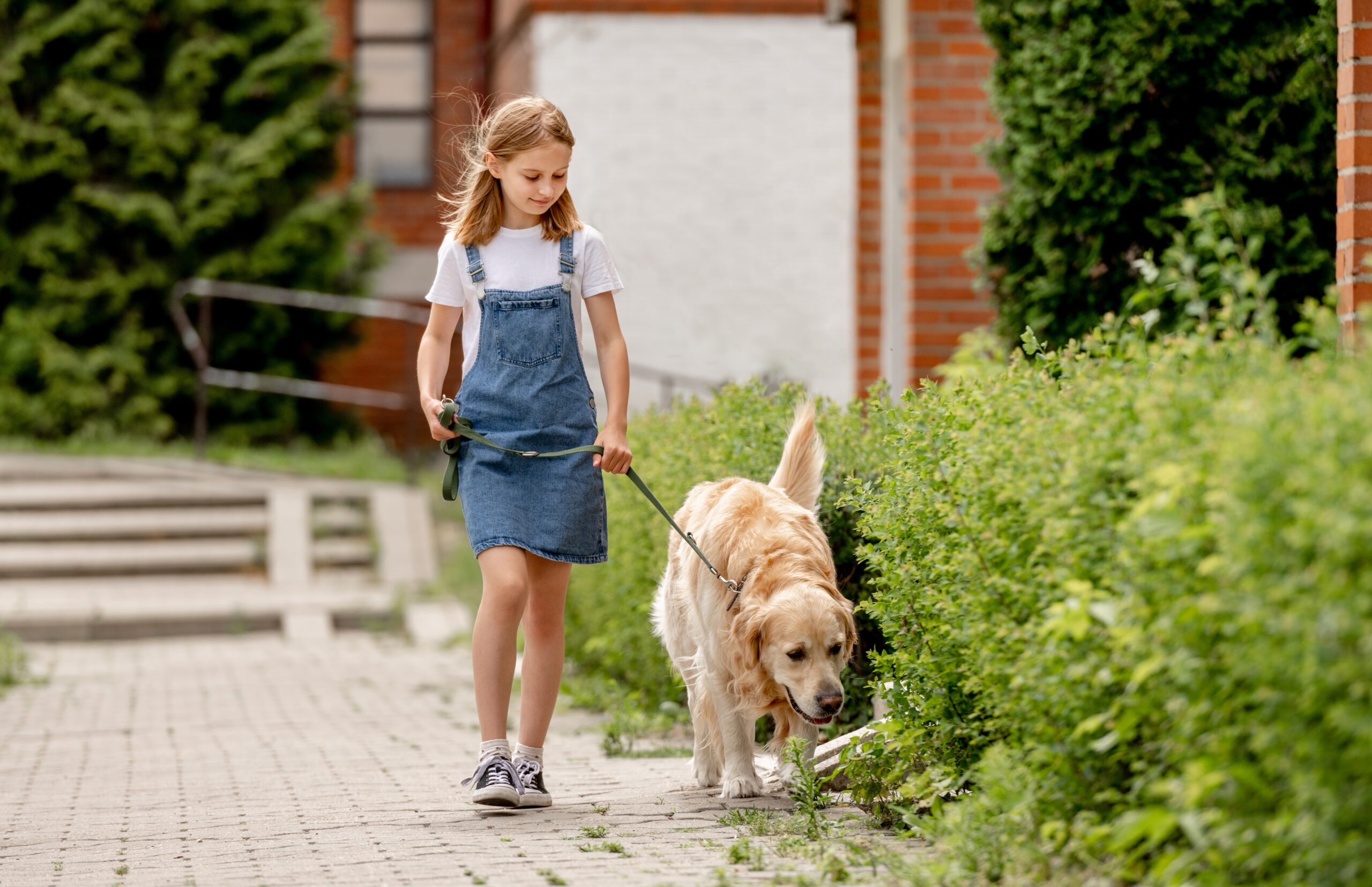
12 & 13-year-olds
- Take a CPR class
- Work for money a couple of hours a week (babysitting, walking dogs, taking care of pets)
- Babysit for younger siblings for 2-3 hours at a time during daytime
- Volunteer at a charitable organization without a parent present
- Plan outings with friends
- Attend friends’ parties alone (with non-related adult supervision)
- Learn how to style hair and make-up
- Talk to a teacher directly to solve school problem without parent present
- Set own alarm to wake up and complete morning routine to be on time for school
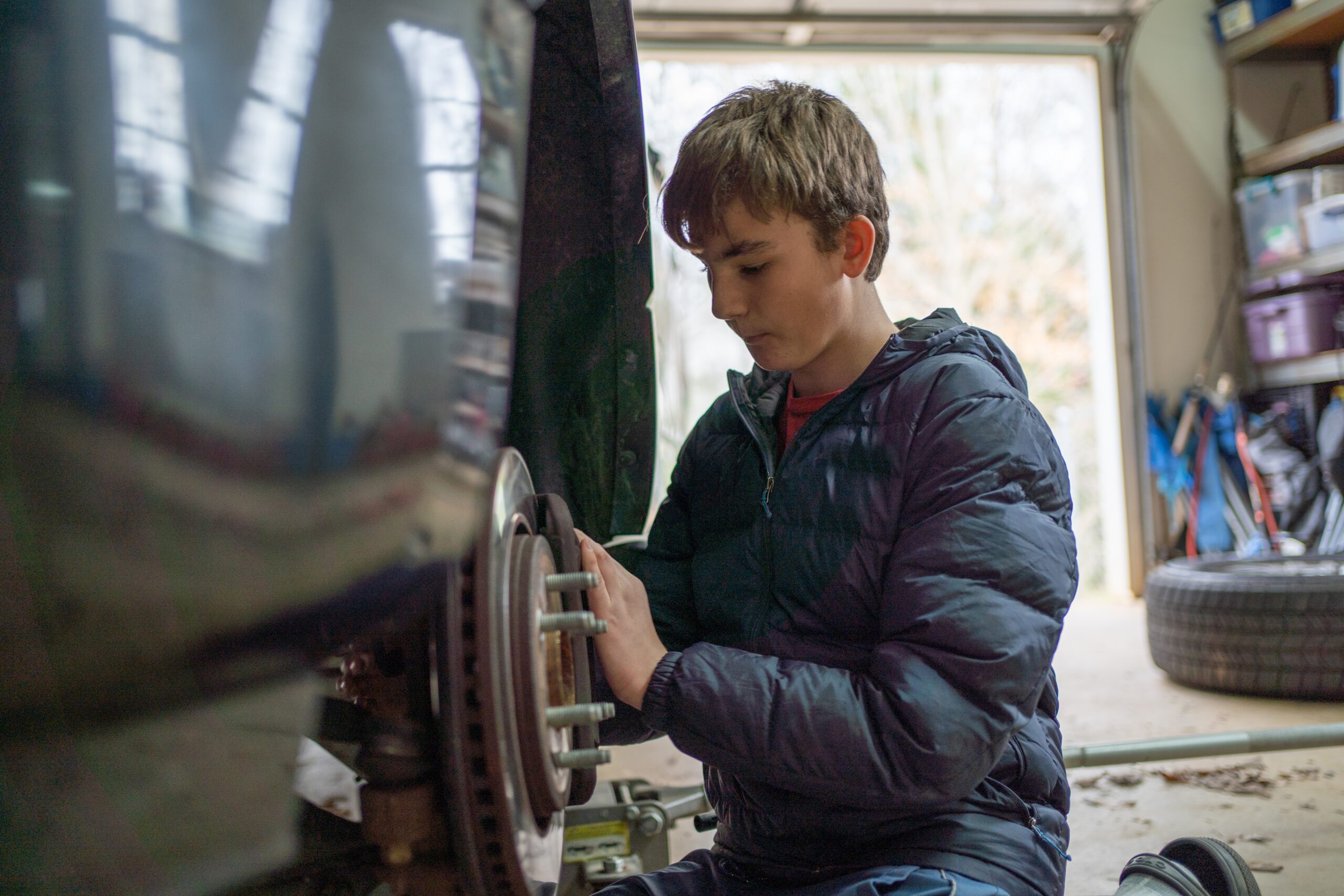
14 & 15-year-olds
- Use a planner for appointments, events, and homework
- Learn car maintenance (change oil, change tire, pump gas)
- Cook a meal for family one night a week
- Stay at friends’ houses overnight
- Learn how to fix routine household problems (clogs, paint, lawn)
- Care for self independently (hygiene, laundry, exercise)
- Engage in extracurricular activities regularly without parent present
- Solve social problems without parent intervention (but with parent support)
- Spend some time each day on independent activity away from home and internet
- Schedule routine medical appointments

16-year-olds
- Learn to drive
- Earn driver’s license
- Interview for a job
- Work or volunteer 5-10 hours a week
- Manage a checking and savings account
- Run family errands to stores
- Plan overnight outings with friends
- Plan a family vacation
- Investigate college and vocational options independently and with parents
- Use car ride services (Uber, Lyft)
- Spend a night alone in home
- Plan for an independent financial goal
